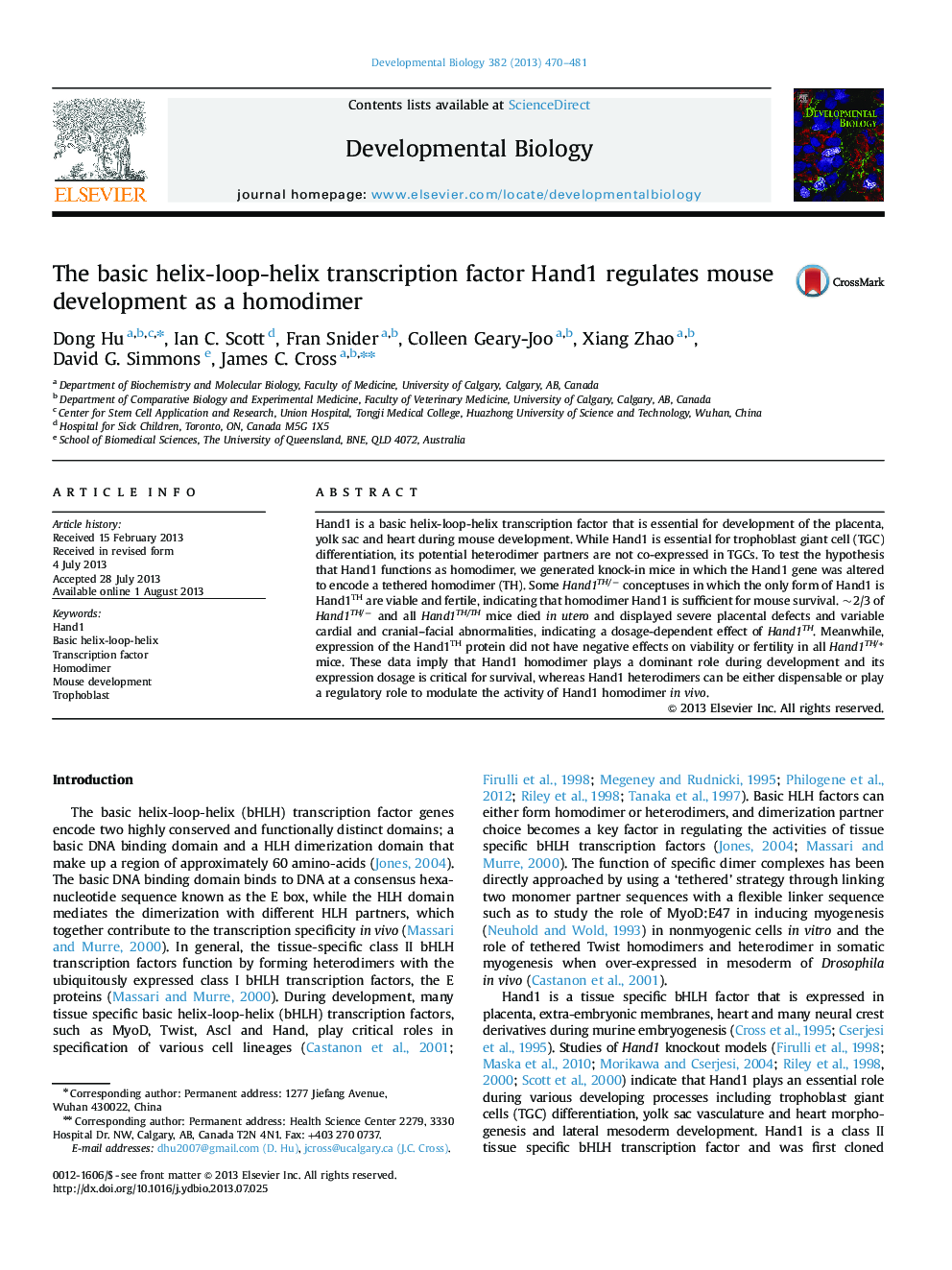| Article ID | Journal | Published Year | Pages | File Type |
|---|---|---|---|---|
| 10931982 | Developmental Biology | 2013 | 12 Pages |
Abstract
Hand1 is a basic helix-loop-helix transcription factor that is essential for development of the placenta, yolk sac and heart during mouse development. While Hand1 is essential for trophoblast giant cell (TGC) differentiation, its potential heterodimer partners are not co-expressed in TGCs. To test the hypothesis that Hand1 functions as homodimer, we generated knock-in mice in which the Hand1 gene was altered to encode a tethered homodimer (TH). Some Hand1TH/â conceptuses in which the only form of Hand1 is Hand1TH are viable and fertile, indicating that homodimer Hand1 is sufficient for mouse survival. ~2/3 of Hand1TH/â and all Hand1TH/TH mice died in utero and displayed severe placental defects and variable cardial and cranial-facial abnormalities, indicating a dosage-dependent effect of Hand1TH. Meanwhile, expression of the Hand1TH protein did not have negative effects on viability or fertility in all Hand1TH/+ mice. These data imply that Hand1 homodimer plays a dominant role during development and its expression dosage is critical for survival, whereas Hand1 heterodimers can be either dispensable or play a regulatory role to modulate the activity of Hand1 homodimer in vivo.
Related Topics
Life Sciences
Biochemistry, Genetics and Molecular Biology
Cell Biology
Authors
Dong Hu, Ian C. Scott, Fran Snider, Colleen Geary-Joo, Xiang Zhao, David G. Simmons, James C. Cross,
